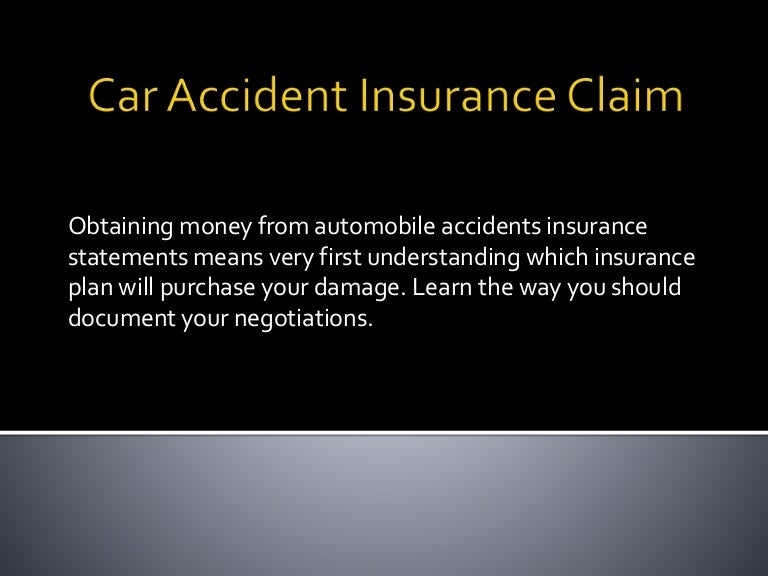What to expect when you file a car insurance claim
by Admin
Posted on 05-08-2023 03:26 PM

Regardless of who's at fault, it's a good idea to inform your car insurance company that an accident occurred.
 Keep in mind that it's your choice whether to file an auto insurance claim with your insurer or the other driver's insurer. You can also file a car insurance claim without filing a police report. Generally, your insurer just needs some basic information about the accident to open a claim, including any pictures you took of the damage. A claims representative will be assigned to you and will help you through the claims process.
Keep in mind that it's your choice whether to file an auto insurance claim with your insurer or the other driver's insurer. You can also file a car insurance claim without filing a police report. Generally, your insurer just needs some basic information about the accident to open a claim, including any pictures you took of the damage. A claims representative will be assigned to you and will help you through the claims process.
If another driver crashes into your car, the process is similar to the steps listed above. You'll want to collect information from the at-fault driver, including their name, address, contact information, and insurance policy number. Don't expect the at-fault driver to contact their insurance company — it's up to you to report the accident to the other driver's insurer. You may also inform your own insurance company about the accident in case you need to file a claim against your own policy because the at-fault driver was uninsured, underinsured, or their insurer denies liability. After paying your claim, your insurer may look to collect payment from the at-fault driver.
1. Provide information about the accident to your insurer
Take pictures of both your vehicle and the other vehicle involved.
 When handling your own
car accident
claim, make sure to capture the entire vehicle, not just the side in which the collision occurred, because that will give a more accurate portrayal of what occurred within the accident. Also, take photos of the interior of the vehicle. It will help give a comprehensive representation of the full scope of the accident and how much damage was done. As the victim of a low-speed collision, you should take photographs of all sides of the vehicle, not just the impacted area, to provide more proof and information on what exactly occurred during the car accident.
When handling your own
car accident
claim, make sure to capture the entire vehicle, not just the side in which the collision occurred, because that will give a more accurate portrayal of what occurred within the accident. Also, take photos of the interior of the vehicle. It will help give a comprehensive representation of the full scope of the accident and how much damage was done. As the victim of a low-speed collision, you should take photographs of all sides of the vehicle, not just the impacted area, to provide more proof and information on what exactly occurred during the car accident.
Once your injuries have been treated, you'll want to contact your insurance company representative in order to report the accident. Your representative will ask you a number of questions and will likely send you documents to fill out. Any information you have (see number 3, below) will be given to the representative in order to process your claim. Make sure to review your coverage and exclusions to make sure you won't be facing any surprises. Most importantly, keep detailed notes of your phone conversations, including names, dates, times and titles of the people you speak with. Make sure to be honest and forthcoming with your insurance provider.
2. Ask questions about your insurance coverage
What you say to your insurance company or its adjuster when filing a claim can be used against you to deny coverage, reduce the value of your claim or prove your negligence. It is important you communicate clearly in each conservation you have with your insurer. Do not admit fault. Do not make accusations. Provide the facts of the accident and details. Other questions or information for which you are not prepared to provide should be referred to your attorney.
Car insurance providers charge their customers monthly premiums and advertise their wide variety of services. Unfortunately, while many auto insurance adjusters work to find the best possible situation for all parties involved, others avoid paying fair settlements to car accident victims. Putting profits over people may not be personal, but since the compensation you receive affects your daily life, financial security, and physical health, it turns out to be quite personal after all.
You need only tell the insurance adjuster the basics like your full name, address, and phone number. You can also tell them what type of work you do and where you are employed. But at this point, you need not explain or discuss anything else about your work, your schedule, your income, your medical/injury history, or anything else.